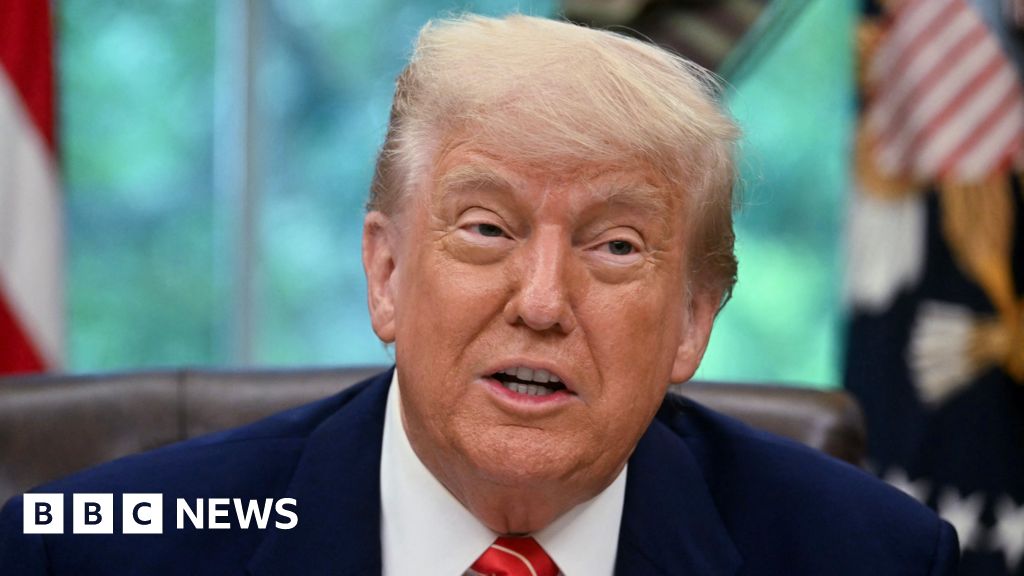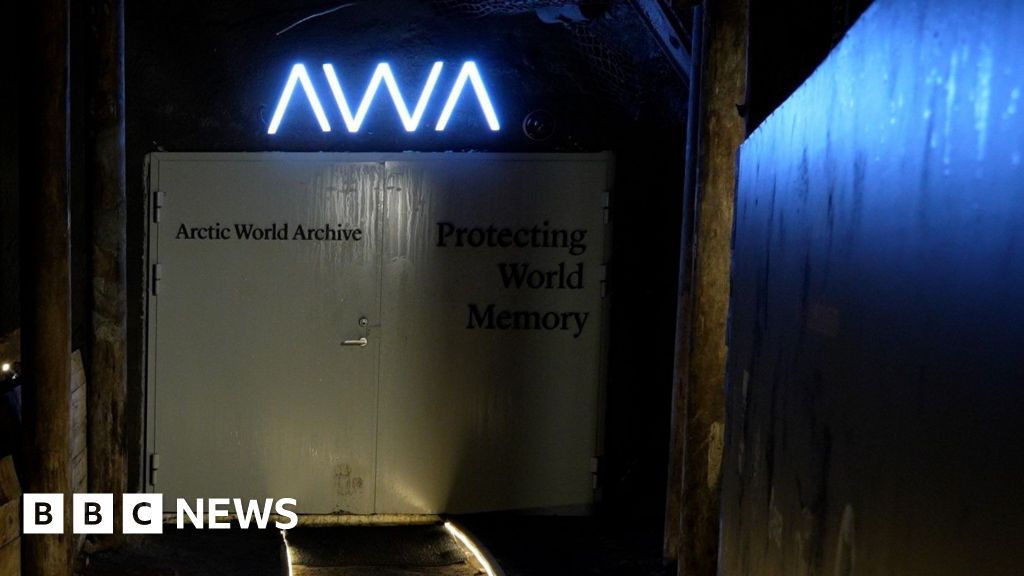ARTICLE AD BOX
Image source, Getty Images
UK steel companies have been operating at a significant disadvantage compared to their European rivals since the beginning of 2022.
The EU has done a deal with the US, which took effect on 1 January, to allow companies to export steel to the US again without any tariffs.
The UK is yet to reach a similar agreement though it is hoping for more talks with America this month.
It means British companies still face a 25% tariff on exports to the US.
And the effect of the change is already being felt.
Moving to Spain
At a foundry in Chesterfield, raw materials are being melted in a furnace to make cast iron bars.
Steel and cast iron are no longer a huge chunk of the British economy but they are about to get a little bit smaller.
Because of the US tariffs on products from the UK, United Cast Bar Limited (UCB), the company that runs this foundry, is moving some of its production to a factory in Spain.
"60% of the products we can make here we can also make in Spain," says James Brand, managing director of foundries at UCB. "And our customers don't want that extra 25% cost."
UCB's James Brand says if it moves steel production to Spain it is unlikey to return to the UK even with a US deal
But if the UK manages to do a deal of its own with the US, will that production come back?
"Probably not,' he says. "It really depends on how early the deal is done."
Once US importers get used to consignments arriving from Spain, a new trade pattern will have been established and the way the tariffs have been set up means they can't be avoided if any part of a product originates in the UK.
"It is highly likely we will just leave it over there (in Spain)," Mr Brand says. "Lost to the UK completely, then."
Trump's tariffs
It was President Donald Trump who signed an order in 2018 to introduce the steel tariffs on national security grounds, which he claimed was to help protect US jobs.
Image source, Getty Images
Image caption,Former US President Donald Trump claimed tariffs would protect American jobs
If the UK government had hoped that Joe Biden's administration would change course quickly, it has been disappointed.
Neither public diplomacy nor private negotiation has yet led to any breakthrough.
Following Mr Trump's move, both the UK and the EU retaliated with tariffs of their own against US products. But it is the EU that has got a deal done first, to resolve the dispute.
That's partly because in trade, size matters.
"They (the EU) are just bigger so they account for more steel exports to the US, and that means there is more interest from US importers in getting it resolved," says Soumaya Keynes, Britain economics editor at The Economist.
"And because there is more trade involved with the EU, the retaliation hurts more."
The EU was also more explicit about how it intended to accelerate retaliation against the American tariffs.
The UK was, says Ms Keynes, "a bit friendlier, a bit chummier, and that could mean the EU had more leverage."
Northern Ireland
For the UK government, there is an added complication.
There is political concern in Washington about British threats to suspend parts of the post-Brexit deal with the EU on Northern Ireland.
The two issues are quite separate, but it is possible that one could delay the other.
Image source, Getty Images
The government argues that the steel dispute could in fact lead to further complications in Northern Ireland, because of its special status as part of the EU single market for goods.
But it is an awkward mix.
What's next?
There is also the question of stepping up UK retaliation against the US tariffs.
The government's formal response to a public consultation on further counter-measures has already been delayed, and it cannot be put off forever,
Trade secretary Anne-Marie Trevelyan issued a careful warning when she spoke to the BBC last month, after returning from a visit to Washington,
"We had a very frank conversation, and I was very clear that the pressures that we are under to use countervailing measures if we can't solve the problem are becoming more and more acute."
The government certainly hopes the dispute can be resolved soon, before it gets worse.
A solution later this month would be a great relief, and the message from industry is pretty clear.
"Crack on, please," says UCB's James Brand. "Let's get a deal brokered as soon as possible and put us on a level playing field with the rest of Europe."
It wasn't supposed to be like this. After Brexit, the UK was relying on a closer relationship with the US than it had when it was part of the EU.
But in matters of trade, many things are easier said than done.

 3 years ago
38
3 years ago
38








 English (US) ·
English (US) ·